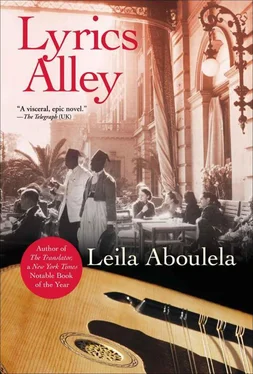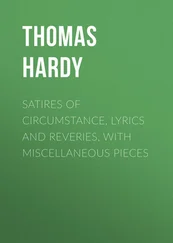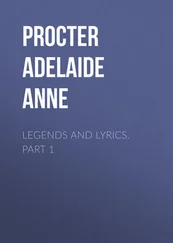Leila Aboulela - Lyrics Alley
Здесь есть возможность читать онлайн «Leila Aboulela - Lyrics Alley» весь текст электронной книги совершенно бесплатно (целиком полную версию без сокращений). В некоторых случаях можно слушать аудио, скачать через торрент в формате fb2 и присутствует краткое содержание. Год выпуска: 2011, Издательство: Grove Press, Жанр: Современная проза, на английском языке. Описание произведения, (предисловие) а так же отзывы посетителей доступны на портале библиотеки ЛибКат.
- Название:Lyrics Alley
- Автор:
- Издательство:Grove Press
- Жанр:
- Год:2011
- ISBN:нет данных
- Рейтинг книги:5 / 5. Голосов: 1
-
Избранное:Добавить в избранное
- Отзывы:
-
Ваша оценка:
- 100
- 1
- 2
- 3
- 4
- 5
Lyrics Alley: краткое содержание, описание и аннотация
Предлагаем к чтению аннотацию, описание, краткое содержание или предисловие (зависит от того, что написал сам автор книги «Lyrics Alley»). Если вы не нашли необходимую информацию о книге — напишите в комментариях, мы постараемся отыскать её.
Lyrics Alley — читать онлайн бесплатно полную книгу (весь текст) целиком
Ниже представлен текст книги, разбитый по страницам. Система сохранения места последней прочитанной страницы, позволяет с удобством читать онлайн бесплатно книгу «Lyrics Alley», без необходимости каждый раз заново искать на чём Вы остановились. Поставьте закладку, и сможете в любой момент перейти на страницу, на которой закончили чтение.
Интервал:
Закладка:
But she could not shut out his family. They came, invited or uninvited. And came casually, with friendly smiles, affection for the children and a staggering tolerance for her moodiness and indifference. She did not understand them. That boy, Nur, with his bright smile, so pleased and at ease with himself. She had explained to him once that he must ring the bell and not just barge in.
Instead of apologising, he had just giggled and said, ‘Isn’t this my father’s house?’
And that girl, Soraya, with her lack of discipline, the sloppy way she carried herself, gum snapping in her mouth, her hands always moving, stroking the back of an armchair or playing with a doorknob in a way which irritated Nabilah. She would gaze dolefully at Nabilah’s wedding photographs without saying a single word. Or she would lean, slouching, on this piece of furniture or that and drawl, ‘how are you doing, Nabilah?’ without addressing her as Madame, Abla, Hanim or even Aunty.
Soraya, too, floated in unannounced, to borrow books and never return them and to poke fun at how Ferial was covered in talcum powder and how Farouk’s accent was Egyptian. How else did she expect the children to speak if not like their mother!
Nabilah kissed Farouk and Ferial the first of many goodnight kisses and prepared to tuck them into bed. They were the only children in the Abuzeid family who had bedtimes and a proper, decorated nursery, with beds of their own. The Sudanese did not understand about proper modern child-rearing, but she would teach them by example. Tonight, instead of a story, she was explaining to the children the origin of their names.
‘You Farouk, were named after the King of Egypt and Sudan who granted Baba his bakawiyya. That’s why Baba is Mahmoud Bey. Not everyone can be called Bey, even if they wanted to. Only the King can decide.’
Farouk smiled and slid deeper into his bed. Ferial was holding on to her mother’s hand.
‘And me, what about me?’
‘Wait. Farouk wants to ask something.’ He always needed encouragement. The boy opened his mouth, closed it again and then asked.
‘But not everyone addresses Baba as Mahmoud Bey. Some people call him Sayyid Mahmoud.’
Nabilah sighed. ‘Some of the Sudanese don’t understand. They don’t appreciate the title. Your father should correct them, but he doesn’t.’
‘So Sayyid is not as good as Bey.’
‘Here in Sudan, Sayyid is the best way a man can be addressed. But your father—’
She was interrupted by Ferial who, not only satisfied with putting her hand on her mother’s cheek, now pulled so that Nabilah had to turn and face her.
‘Don’t do that. It’s not polite.’
The girl, whose hair was smooth in a ponytail, pressed her lips in annoyance.
‘What about my name, my name?’
‘Say sorry first, Ferial.’
‘Sorry.’
‘Say it like you mean it.’
‘Sorry, Mama.’
‘That’s better.’
Nabilah kissed her cheek and smoothed her hair. What a blessing from God that her daughter did not have coarse hair! She had worried about this constantly during her pregnancy.
‘You were named after a princess. Princess Ferial is the eldest daughter of the King.’ The girl squirmed with pleasure. ‘Now into bed.’
She tucked her lively daughter in bed but Ferial was wide awake. ‘When Grandma comes from Cairo will she be the one telling us bedtime stories?’ The children knew that Nabilah had sent a telegram to Qadriyyah Hanim telling her about Mahmoud’s illness and begging her for a visit.
Now she sighed.
‘She won’t be able to come. Next time I put a call to her, I will let you speak for a little while. Oh, if only we were in Cairo now! I am sure Baba would not have been so ill, for I am sure the doctors in Cairo are better than the ones here.’
It still did not feel right that they were in Sudan. This had not been the original arrangement when they first got married. The original arrangement was that she would live in the flat Mahmoud had set up for her in Cairo, and that he would spend lengthy visits with her. After all, his business required that he spend several months in Cairo and it made sense to have a home there instead of his suite in the Shepheard’s Hotel. Nabilah would be his Egyptian wife in Cairo and Hajjah Waheeba his Sudanese wife in Umdurman. It had made perfect sense, and years passed that way, successfully, but suddenly he proposed to move her and the children here. Nabilah’s mother encouraged her to accept and Mahmoud Bey assured them that Nabilah would have her own quarters; she would be independent of Hajjah Waheeba and the rest of the Abuzeid family. He promised that every summer she, Farouk and Ferial would return to Cairo. So Nabilah had gathered her courage, took a deep breath and with a friendly shove from her mother, plunged herself into Umdurman.
To banish the feeling of nostalgia, Nabilah turned to her serious son.
‘Guess who visited Baba today?’ She straightened the collar of his pyjamas. ‘Your teacher, Ustaz Badr.’
Farouk stared into space. His skin was darker than his mother and sister’s, his hair more curly, his features more African.
‘When will Baba come home?’
She stroked his cheek.
‘Soon. He is better today. Tomorrow when we go see him he will come home with us.’
In his illness, Mahmoud Bey had chosen to go back to his old room in the central part of the saraya, near Hajjah Waheeba’s hoash. He did not want his many guests to disturb Nabilah, he had said.
‘Is he going to die?’
As if she had not just told him that his father was getting better! The boy was aloof, perhaps because of all the time they had spent alone in Cairo, without his father. Mahmoud Bey rarely addressed him and Farouk was stiff and uncomfortable in his father’s presence.
She frowned.
‘This is a very rude thing to say about your father. You must never say this word again. It is not a word to be said and it must not even cross your mind.’
Yet she thought it, too. She made peace with Farouk, for she did not want him to go to sleep weighed down by her disapproval, a situation which usually resulted in him wetting his bed. But after she put out the lights and walked to her own bedroom, she abandoned herself to the rudeness and anxiety she had denied him. The death of her husband would mean one thing for her. A return to Cairo.
She would be the same age as her mother had been when she was widowed. Nabilah’s father had died when she was nine and her mother remarried within a year. But, if Mahmoud died, Nabilah would not need to marry again because she would have an income and an inheritance share in Mahmoud Bey’s wealth. It was obscene to follow this line of thinking, yet her mind could not help but gallop in this direction. She saw herself wearing black, boarding a plane with the children, her eyes pink from crying, her face pale, without rouge. She imagined her mother meeting her at the airport and the drive home; the wide roads, the familiar sights and sounds. The doorman would stand up in greeting when they reached the building and carry her suitcase up the stairs. The door of the flat would be already open when they stepped out of the lift. Her mother’s maid would be there, in her long patterned dress and kerchief.
‘Alhamdullilah for your safe return, ya sett hanim.’
A feeling of shame passed through her and brought tears to her eyes. Mahmoud Bey was getting better, the English doctor had said that, and she could tell, too. There was no need for these morbid, perversely exciting thoughts. Her husband had been so generous to her, compensating for the father she had lost, for any sense of deprivation she had felt. She had experienced real joy when they were together in Cairo, the time after the wedding when their new flat was being decorated and they had stayed at his suite in the Shepheard’s Hotel. There was the evening they had gone to see Um Khalthoum in concert, the nightclubs on Pyramid Road where they would go for dinner and a show. Oh, the fun she had had, watching the belly dancer and looking around at the other tables, comparing her clothes with those of the other ladies, her hair with their hair, and always feeling good about herself. In those days she had forgotten that she had married a Sudanese. Mahmoud was light-skinned enough to pass for an Egyptian, his clothes were as modern and as elegant as any other Bey, and she was his new wife, much younger than him, but that was not uncommon.
Читать дальшеИнтервал:
Закладка:
Похожие книги на «Lyrics Alley»
Представляем Вашему вниманию похожие книги на «Lyrics Alley» списком для выбора. Мы отобрали схожую по названию и смыслу литературу в надежде предоставить читателям больше вариантов отыскать новые, интересные, ещё непрочитанные произведения.
Обсуждение, отзывы о книге «Lyrics Alley» и просто собственные мнения читателей. Оставьте ваши комментарии, напишите, что Вы думаете о произведении, его смысле или главных героях. Укажите что конкретно понравилось, а что нет, и почему Вы так считаете.











